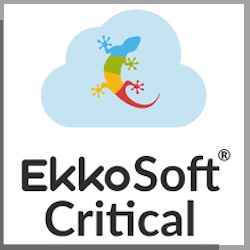Over the next decade, thousands of residential and commercial building owners across the United States will need to manage, monitor and reduce their carbon footprints. The result: Green IT service providers, MSPs and climate tech partners can potentially find new clientele across the commercial and residential real estate markets.
The big picture: Adoption of statewide policies for BPS (Building Performance Standards) is rising across the United States, reflecting the "commitment of states to address climate change and foster sustainable practices on a broader scale," CBRE reports.
The mandates so far: California, Colorado and New Jersey already have BPS regulations in place. Maryland, Massachusetts, Minnesota and Washington are scheduled to do the same over the next three years, CBRE said.
What's next: Multiple U.S. cities and countries are launching regulations that will force building owners and real estate investors to decarbonize their commercial and residential assets. Examples include the New York Local Law 97; a large buildings emissions law in Seattle, Washington; and a Future Homes Standard in the United Kingdom.
Partner considerations: For technology and HVAC partners, the regulations are both a challenge and an opportunity. Indeed, building owners and facilities managers in those states will increasingly require partners that understand how to leverage IT services for carbon monitoring, management and reduction.
Building Energy Management (BEM): Market Growth Forecasts
Demand for building energy management systems appears steady to strong, depending on which market forecast you potentially believe. For instance:
- The global building automation and control system market will reach $168.8 billion by 2031, up from $87.3 billion in 2022, Transparency Market Research forecast. That's a compound annual growth rate (CAGR) of 7.9%, the firm said.
- Spending on building management systems is expected to reach $19.25 billion in 2023, up from $6.65 billion in 2016. That's a 16.7% compound annual growth rate (CAGR) during the forecast period, according to MarketsAndMarkets.
The U.S. government also is assisting the market. For instance, the federal government plans to spend $250 million to help federal agencies implement net-zero building projects.
Building Energy Management: Business Milestone Timeline
Amid that backdrop, numerous startups and consulting companies now focus on smart buildings and associated energy management systems. For instance:
- January 2024: Holcim is partnering with Greentown Labs, an incubator of climate tech startups in North America, to "accelerate open innovation for the decarbonization of the built environment," the two organizations said. The partnership provides Holcim with "prime access to promising startups focused on innovative and sustainable building solutions," the company said.
- January 2024: ClearVue Technologies and LuxWall are collaborating to "develop and commercialize a window designed to support net zero building operation." The effort combines ClearVue's photovoltaic solar energy-generating glazing with LuxWall's advanced vacuum insulated glazing (VIG). The resulting solution is called Zero Window.
- December 2023: Johnson Controls International continues to bet its business on smart building technologies that align with customers' energy efficiency, sustainability and decarbonization goals, CEO George Oliver told Wall Street analysts during an earnings call.
- July 2023: The State of New York has $18 million available under the Next Generation Buildings Innovation Challenges for projects that offer advanced building technologies for clean heating, ventilation, and air conditioning (HVAC) systems, building envelopes, and controls, according to Governor Kathy Hochul.
- May 2023: BrainBox AI raised $20 million, led by CEO Sam Ramadori, to further develop autonomous building technology -- which improves the performance of HVAC (heating, ventilation and air conditioning) systems. Around the same time, BrainBox AI acquired a multi-site retail (MSR) energy management system integrator.
- March 2023: Microsoft's Climate Innovation Fund invested in BlocPower, which develops a SaaS analytics software platform for the greening of America's buildings, and the decarbonization of low income communities.
- March 2023: CarbonCents Inc., a Clemson University sustainability startup, has received approval from the SC Launch Inc. board for a $250,000 convertible note.
- February 2023: Power management company Eaton and IES partnered to assist customers with sustainable building strategies. The effort involves digital twin technology -- which allow customers to see and analyze a 3D digital representation of their buildings and supporting infrastructure.
So what's next? We'll be watching for additional state, local government and municipality regulations related to buildings, sustainability, energy management and carbon reduction.







